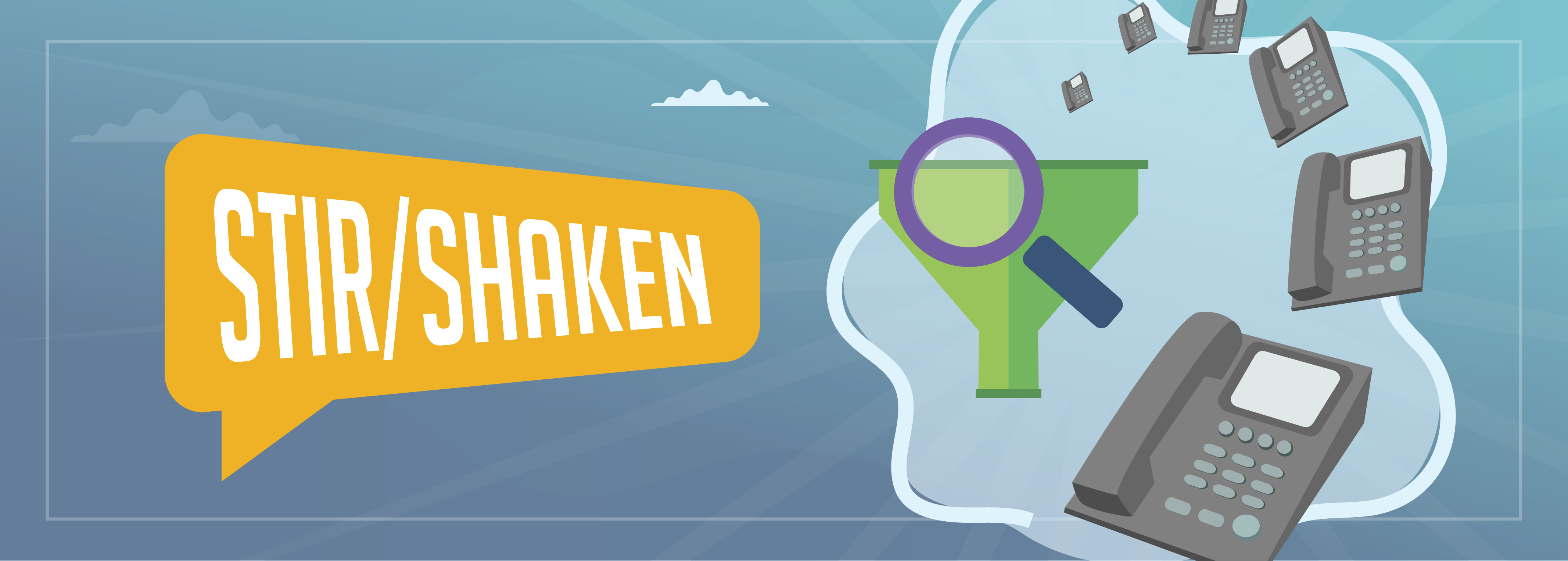STIR/SHAKEN: What Your Call Center Needs to Know Before the June 30 Deadline
Everyone is tired of those annoying robocalls promising a once-in-a-lifetime cruise or last offer to renew an auto insurance policy. Over the last decade, the number of robocalls has climbed to over 4 billion a month, with 90% of those originating outside the United States. We saw some improvements as new regulations were introduced such as, the National Do Not Call Registry and the Telephone Consumer Protection Act (TCPA) but that had little impact on identifying the bad actors.
The Real Reason for STIR/SHAKEN
To understand why we need STIR/SHAKEN it’s important to take a look back at the history of the telephone.
On March 10, 1876, Alexander Graham Bell made the first successful phone call. With that first call, before knowing how telecommunications would evolve over the next century, it was determined that to be physically connected to a network was to be trusted – due in part to various traits and the high cost of establishing a physical connection.
These types of securities were real and tangible. With the introduction of VoIP and SIP, the world continued to evolve new ways of communicating with people while ignoring real identity, security, or trust. With time, things started to get out of hand and the FCC recognized that more was needed to help combat spam calls and re-establish trust in telecommunications.
What is STIR/SHAKEN
The FCC introduced STIR/SHAKEN as a set of protocols and procedure requirements intended to combat caller ID spoofing on public telephone networks by authenticating certificates on both originating and connected calls at the carrier level. STIR stands for Secure Telephone Identity Revisited. SHAKEN stands for Signature-based Handling of Asserted Information Using toKENs.
STIR/SHAKEN Summarized
- A Framework Designed to Assign a Certificate of Authenticity to Each Call
- STIR (Secure Telephone Identity Revisited) / SHAKEN (Signature-based Handling of Asserted information using toKENs) is a framework designed to assign a certificate of authenticity to each phone call
- Calls pass through many hands before completion, such as caller, the caller’s carrier, backhaul carriers, callee’s local carrier, and callee.
- STIR/SHAKEN is about validating the caller’s identity between the caller and callee and all the touchpoints between (such as call centers, BPO’s, etc.), and originating/terminating carriers.
Call centers with any voice traffic, inbound or outbound, could start to see a measurable impact on their connection rates with the risk of being labeled as potential spam. Many phone softwares are already flagging calls natively.
Enter STIR/SHAKEN
To re-establish trust and protect consumers, the FCC requires service providers to adopt and deploy a STIR/SHAKEN solution by June 30, 2021.
TCN has already implemented STIR/SHAKEN protocols with carriers and is ready for the upcoming deadline. Our call center clients have the opportunity to take advantage of TCN’s full attestation protocols that can help verify business phone numbers while reducing compliance risk.
Understanding STIR/SHAKEN
Taking a step back to see what STIR/SHAKEN can do and cannot do can help know what areas of your call center will be impacted.
STIR/SHAKEN
STIR/SHAKEN Does Not
It is important to remember that on June 30, we won’t see all robocalls disappear. This is a significant step forward to bringing trust back into the network and identifying the bad actors.
In a STIR/SHAKEN call, the originating service provider signs (or attests) their relationship with the caller and their right to use the calling number.
Check out our Understanding STIR/SHAKEN Guide for more information on how to prepare for STIR/SHAKEN.
To talk to an expert, be sure to request a demo and let us help you get ready for STIR/SHAKEN.
